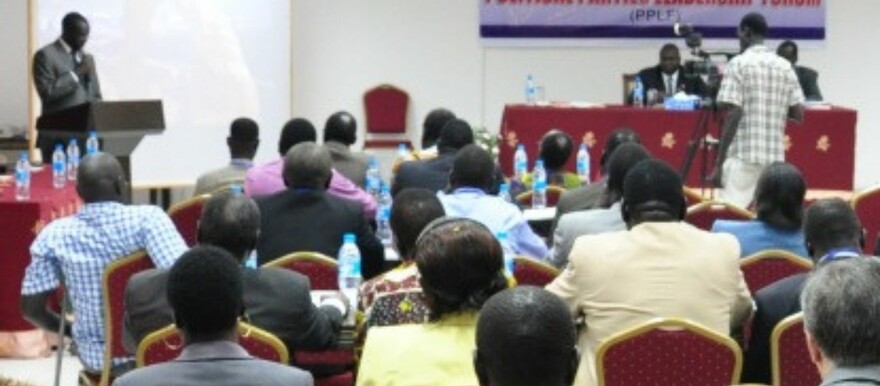The Political Parties Act, 2012 (Amendment) Act, 2023 stipulates in Chapter 3 that there will be Political Parties Council which shall among other things, register, monitor, regulate, and de-register political parties.
The other functions of the Council are to issue certificates of registration to political parties, indicate in the register that changes have taken place within a political party, maintain records of registered political parties, and administer the Political Parties Fund.
The Council will also investigate and determine complaints received under the Political Parties Act, ensure the publication of audited annual accounts of political parties, prepare the annual budget proposal for the Council, and submit it to the National Council of Ministers for consideration and approval by the Transitional National Legislative Assembly.
The Council will also observe the conduct of political parties’ primary elections and carry out any other function as may be prescribed by the Act or any other applicable law.
The Council shall have the power to demand that all political parties comply with the Constitution, laws, regulations, and obligations in the Act.
Section 11 (3) of the Act states that the term of office of members of the Council shall be five (5) years and may be eligible for renewal upon re-appointment by the President after consultation with all the political parties and stakeholders to the Agreement provided that during the transitional period, the President shall consult with the First Vice President and the four Vice Presidents.
However, retrospectively, Section 11 (4), stipulates that notwithstanding the provision of Section 11 (3), during the transitional period, the executive of the RTGoNU shall reconstitute the Political Parties Council not later than two (2) months after the amendment of the Political Parties Act, and no later than four (4) months into the Transitional Period.
The Act also states that a person may be appointed as a member of the Council, if he or she is a South Sudanese, is at least thirty years of age, of sound mind, and is literate.
The other eligibility requirements are that a person has at least a secondary school leaving certificate or equivalent and should not have been convicted of an offense involving honesty or moral turpitude for the last seven years.
According to Section 13 (1), the Council shall be comprised of a full-time Chairperson and Deputy Chairperson and seven (7) part-time members who shall be constituted by the Executive of the RTGoNU, provided that during the transitional period, the President shall consult with the First Vice President and the four Vice Presidents and such constitutions all be in consultation with all the registered political parties and stakeholders.
The Act also stipulates that the status of the Chairperson and the Deputy Chairperson shall be similar to that of a National Minister and Deputy Minister respectively.
Others are that the Council shall comprise at least thirty-five percent women, all members be residents of South Sudan, and that members be persons known for their integrity, honesty, objectivity, and experience and people who shall have no partisan affiliations.
It is important to note that Section 11 (6) states that the Chairperson, Deputy Chairperson, and members of the Council shall be approved by resolution adopted by a two-thirds majority of the members of the Transitional National Legislative Assembly, and following approval shall be appointed by the President. Also, before assuming their functions, the Chairperson, Deputy Chairperson, and members of the Council shall take oath before the President.
Section 18 states that the Chairperson of the Council shall preside over meetings of the Council, maintain order and represent the Council within and outside South Sudan, supervise the financial and administrative matters of the Council, call meetings of the Council, sign regulations and resolutions of the Council and to monitor the activities of political parties.
According to the Act, the Chairperson may delegate his or her powers and functions to the Deputy Chairperson, member of the Council, or Secretary-General for the effective and efficient performance of the Council.
The Deputy Chairperson shall undertake a full deputizing role in the absence of the Chairperson, ensure that opportunities for further development for all members of the Council are regularly provided for, and undertake specific tasks and responsibilities as requested by the Chairperson.
Section 20 which deals with Meetings of the Council states that the quorum for meetings and resolutions of the Council shall be five (5) of its members and decision-making shall be by simple majority and in the event of a tie, the Chairperson shall have a casting vote.
Section 22 states that there shall be established a Secretariat for the Council to be headed by a Secretary General.
The Secretary-General shall be appointed by the Council, and be a person of integrity, experience, and high efficiency.
The emoluments and benefits of the Secretary-General shall be determined by the Council by the Civil Service Act 2011.
The Secretariat shall comprise of staff, experts, or consultants as may be determined by the Council.
According to the Act, the Government shall provide adequate funding to the budget and activities of the Council. The Council may receive donations or contributions from any other lawful source.
The Political Parties Act also specifies that the emoluments and benefits of the Council shall be determined by law.




